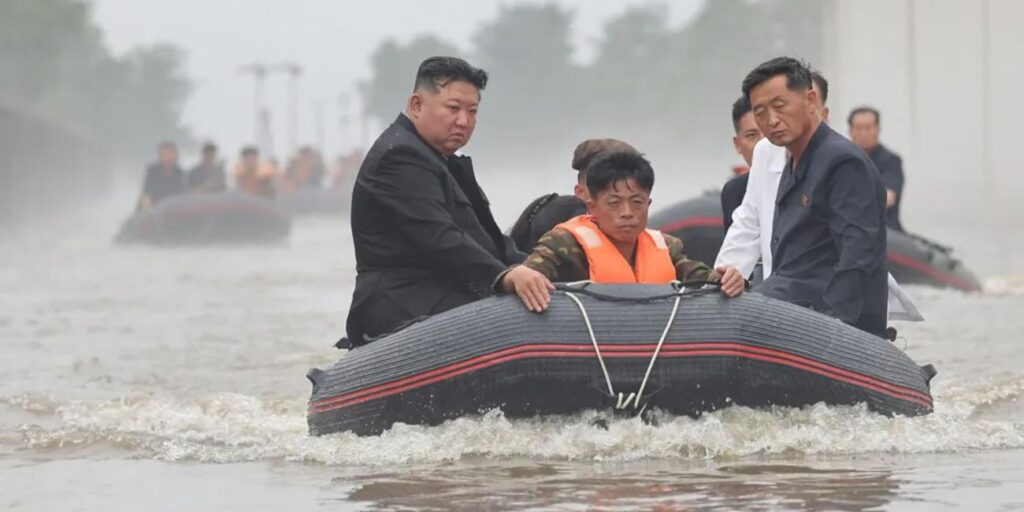
North Korea reportedly executed 30 government officials last month, accusing them of corruption and dereliction of duty following their alleged failure to adequately respond to severe floods and landslides that resulted in the deaths of over 4,000 people.
According to South Korean news outlet TV Chosun, the officials were held responsible for the ineffective disaster response that left over 15,000 people displaced and caused extensive damage to homes, farmland, and infrastructure in the Chagang province.
The flooding, which occurred in July, particularly devastated the northwestern city of Sinuiju and the neighboring Uiju, severely damaging over 4,100 homes, 7,410 acres of farmland, and essential infrastructure such as roads and railway lines. In response, North Korean leader Kim Jong-un reportedly ordered harsh punishments for those deemed responsible for the failure.
An anonymous official within Kim’s regime told TV Chosun that between 20 and 30 high-ranking officials from the affected areas were executed late last month. The Independent reported that the North Korean Central News Agency also indicated that authorities had been instructed to “strictly punish” those accountable. However, the accuracy of these reports has yet to be independently verified.
Following the disaster, Kim Jong-un reportedly refused international aid, instead ordering the relocation of thousands of displaced residents to the capital, Pyongyang, where they would receive better care. The North Korean government anticipated that rebuilding efforts would take two to three months and planned to support approximately 15,400 vulnerable individuals during this period.
TV Chosun also reported that Kang Bong-hoon, the provincial party committee secretary for Chagang Province, was dismissed from his position in connection with the inadequate response. This execution claim comes after previous reports by TV Chosun, such as the 2019 claim that Kim Hyok Chol, North Korea’s nuclear envoy to the U.S., had been executed—later debunked by CNN when it was revealed that Kim Hyok Chol was still alive.
Public executions have a history in North Korea, with the Korea Times noting an average of 10 executions annually before the COVID-19 pandemic. The number has reportedly increased to over 100 per year, a rise attributed to the country’s unstable economy, international sanctions, and the impact of natural disasters, according to Yang Moo-jin, president of the University of North Korean Studies in Seoul.